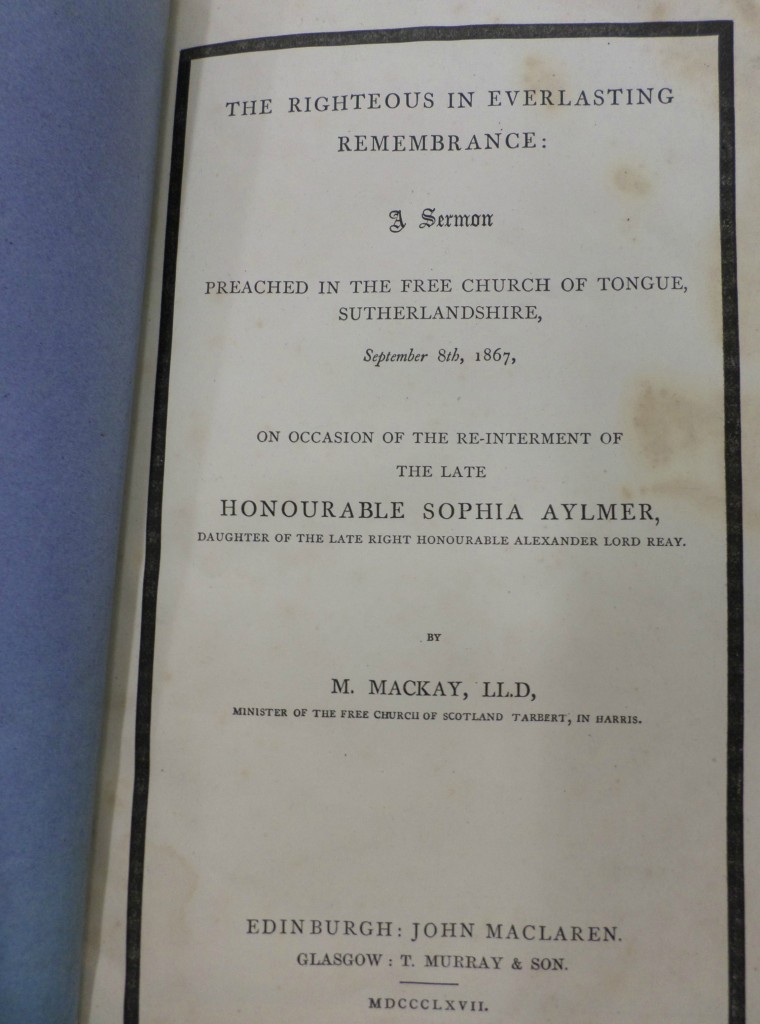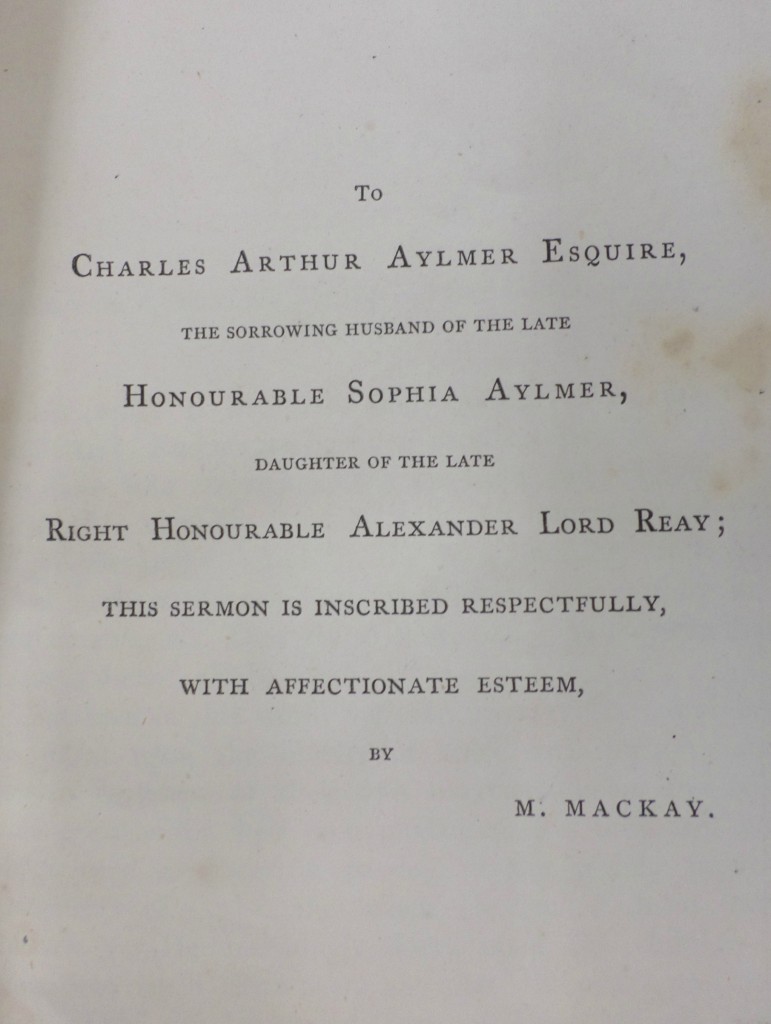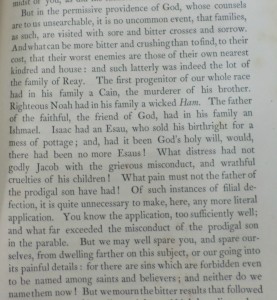

Title: A Sermon Preached on occasion of the re-internment of the late Honourable Sophia Aylmer
Author: M Mackay
Published: 1867
Location: 252.05241 FM 2036
What is this book about?
This book is a published sermon by Dr Macintosh Mackay. At the time Dr Mackay was the minister of Tarbert in Harris and in The Book of Mackay, Angus Mackay says that he had been a friend of the late Alexander 8th Lord Reay, Sophia’s father. The sermon was delivered in the Free Church of Tongue a week before Sophia Aylmer was reinterned there. Of the 28 pages of text the first 12 pages explain what righteousness is, with some biblical references. 10 pages are a short history of the Lords of Reay – specifically with regard to their righteousness (or lack of it in one case). Less than two pages are actually about Sophia Aylmer.

Why Does This Book Matter?
Within the history of ancestral righteousness, it is Mackay’s judgement on Eric 7th Lord Reay which is most intriguing. Dr Mackay says that the 7th Lord Reay’s activity “far exceeded the misconduct of the prodigal son”. Mackay goes on to say that he won’t discuss the painful details because “there are sins which are forbidden even to be named among saints and believers”.

However in The Book of Mackay, Angus Mackay seems to suggest that the Rev Macintosh Mackay is more sympathetic towards Eric. It seems Eric had lost the Reay estates when the Duchess of Sutherland called in a debt and compelled him to give over the whole estate to her. According to Angus Mackay the loan had been for the not inconsiderable sum of £100,000 stg and Eric’s income of £10,000 a year was not enough to meet his expenditure so it was inevitable that he would forfeit his estates to the Duchess of Sutherland.
In his sermon, Mackintosh Mackay states that this was why Alexander 8th Lord of Reay did not live “in the midst” of his people.
However, the conclusion has to be that this book matters most for Sophia Aylmer, on whom there is little other existing information.
She has a memorial in St. Andrews Church Tongue. According to the The Gentleman’s Magazine she was married to Charles Arthur Aylmer in Plymouth on August 10th, 1853 and she died, after a long and painful illness on September 24th 1866 in Brighton.
Mackay suggests that she loved Sutherlandshire so much and had such a high regard for her great grandfather that it was her wish to be buried beneath St Andrews Church with him and so she was reinterned there.
Mackay says this to the packed church:
“She did consider and feel, that you were her own people still: and that she was still one of yourselves, among whom, had that been God’s will, she would have delighted to dwell, and not amid the empty gaeities of the world.”
Married in Plymouth, died in Brighton. Very far away from Sutherlandshire, and not just in a geographical sense. It’s hard not to imagine that perhaps Sophia did actually quite enjoy the gaieties of the world that Plymouth and Brighton had to offer.
Who Would Enjoy This Book?
As a historical source on the Lords of Reay the facts are a bit veiled but it is never the less of interest, especially in comparison with other histories. It also offers a tiny, but fascinating glimpse into the life of Sophia Aylmer, and perhaps by extension to the lives of such women in this period.
Melanie Manwaring-McKay
